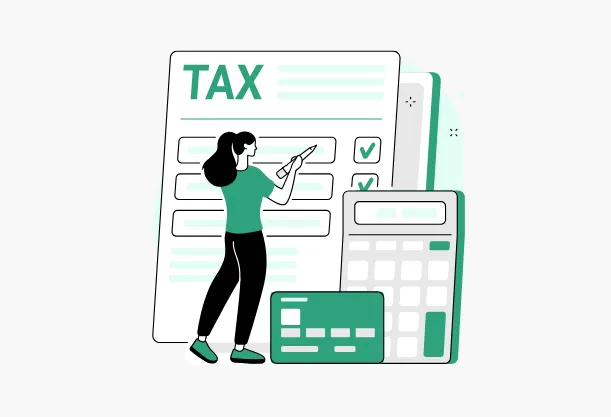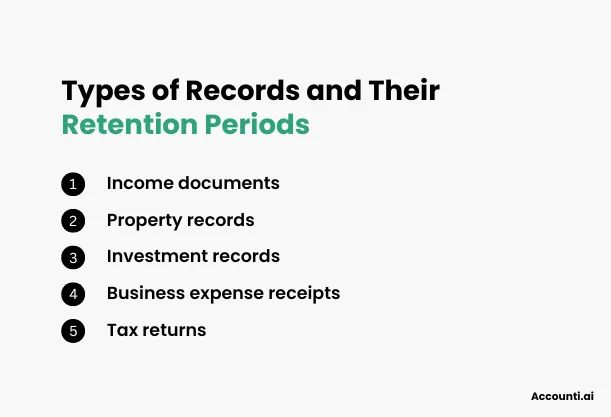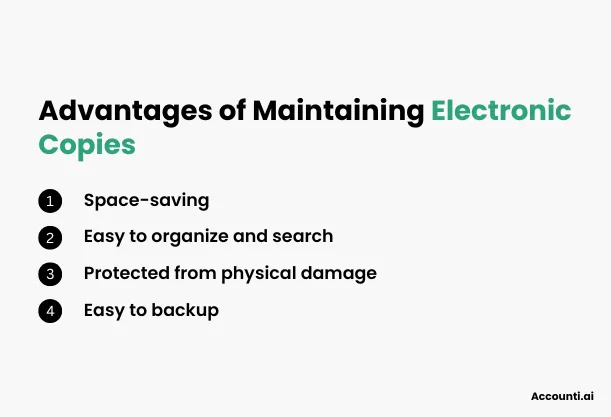
How Long Should You Keep Your Tax Records in Case of an Audit?
Tax season comes and goes, but the responsibility of maintaining accurate financial records lasts much longer. Whether you're an individual taxpayer or a business owner, proper record-keeping is crucial, especially when it comes to your tax documents. But how long should you hold onto these papers? What happens if you're faced with an audit years down the line? These are questions that many taxpayers grapple with, and for good reason.
The importance of keeping tax records cannot be overstated. These documents serve as your financial history, providing evidence of your income, expenses, and various financial transactions. They're not just useful for filing your taxes each year; they're your first line of defense if the Internal Revenue Service (IRS) or state tax authorities come knocking with questions about your past returns.
In this comprehensive guide, we'll delve into the intricacies of tax record retention, exploring how long you should keep different types of documents, what the IRS guidelines say, and why maintaining these records is so crucial. We'll also provide practical advice on organizing and storing your tax documents, ensuring you're well-prepared for any potential audits or inquiries.
How Long Should You Keep Your Tax Records?
The question of how long to keep tax records isn't always as straightforward as we'd like it to be. While there are general guidelines provided by tax authorities, the specific retention period can vary based on your individual circumstances and the type of records in question.
General Guidelines
The Internal Revenue Service (IRS) provides a basic rule of thumb: keep your tax records for at least three years from the date you filed your original return or two years from the date you paid the tax, whichever is later. This period is known as the "period of limitations" for assessing additional tax.
However, this three-year rule is just the starting point. Depending on your situation, you might need to keep certain records for a much longer time.
Different Types of Records and Retention Periods
Let's break down the retention periods for different types of tax-related documents:

- Income documents: This includes W-2s, 1099s, and other forms reporting your income. Keep these for at least 3 years from the date you filed your return.
- Property records: If you own property, keep records related to its purchase, improvements, and expenses for the duration of your ownership, plus an additional 3 years after you dispose of the property.
- Investment records: For investments in stocks, bonds, mutual funds, etc., keep records of your purchases and sales for at least 3 years from the date you sold the investment and reported it on your tax return.
- Business expense receipts: If you're self-employed or own a business, keep receipts and records of your business expenses for at least 3 years from the date you filed the return.
- Tax returns: While the IRS only requires you to keep returns for 3 years, many tax professionals recommend keeping copies of your filed tax returns indefinitely. These can provide valuable information in the future and serve as a record of your financial history.
IRS Guidelines for Record Retention
The IRS provides specific guidelines for record retention, which are crucial to understand if you want to stay compliant and prepared for any potential audits.
Standard Retention Periods
The IRS outlines two main timeframes for record retention:
- 3-year rule: This is the standard period of limitations. It applies to most situations where you've reported all income correctly. The IRS generally has three years from the date you file your return (or the due date of the return, whichever is later) to assess additional tax.
- 7-year rule: This extended period applies to certain situations, such as claiming a loss from worthless securities or a bad debt deduction. In these cases, you should keep relevant records for 7 years.
Specific Situations Requiring Longer Retention
There are several scenarios where you may need to keep records for longer than the standard periods:
- If you file a claim for credit or refund after filing your return, keep records for 3 years from the date you filed the original return or 2 years from the date you paid the tax, whichever is later.
- If you file a claim for a loss from worthless securities or bad debt deduction, keep records for 7 years.
- If you didn't report income that you should have reported, and it's more than 25% of the gross income shown on your return, keep records for 6 years.
- If you file an amended return, keep records for either 3 years from the date you filed the original return or 2 years from the date you paid the tax, whichever is later.
Special Circumstances Where You Should Keep Records Longer
While the standard retention periods cover most situations, there are special circumstances where you should consider keeping your records for an extended period or even indefinitely.
Fraud or Underreporting Income
If you've committed tax fraud or substantially underreported your income, the statute of limitations for the IRS to come after you is unlimited. In these cases, it's wise to keep all tax records permanently.
It's important to note that the IRS considers a substantial understatement of income to be 25% or more of your gross income. If you fall into this category, whether intentionally or not, the IRS has six years to challenge your return.
Claiming Bad Debt or Worthless Securities
If you're claiming a loss from worthless securities or a bad debt deduction, you should keep related records for 7 years. This extended period allows you to provide necessary documentation if the IRS questions these specific claims.
What Kind of Records Should You Keep?
Knowing which records to keep is just as important as knowing how long to keep them. Here's a breakdown of the essential documents you should maintain:
Categories of Records to Maintain
- Income records: This includes all documents that report your income, such as:
- W-2 forms from employers
- 1099 forms for miscellaneous income
- Bank statements showing interest earned
- Brokerage statements for investment income
- Deduction records: If you itemize deductions, keep records of:
- Charitable donation receipts
- Medical expense receipts
- Mortgage interest statements
- Property tax payments
- Expense records: For business owners or self-employed individuals, keep records of:
- Business-related receipts
- Mileage logs
- Home office expenses
- Receipts for supplies and equipment
- Asset records: Maintain records related to:
- Real estate purchases and sales
- Stock and bond transactions
- IRA contributions and distributions
Business vs. Personal Records
While personal tax records generally follow the 3-year rule, business records often require longer retention. It's recommended to keep business tax records for at least 7 years. This includes:
- Payroll records
- Employee records
- Business asset records
- Financial statements
- Contracts and agreements
Remember, certain business records, such as those related to employment taxes, should be kept for at least 4 years.
Electronic vs. Physical Copies
In our digital age, the question of whether to keep physical or electronic records is increasingly relevant. Both methods have their pros and cons.
Benefits of Keeping Electronic Copies

- Space-saving: Digital storage eliminates the need for physical storage space, which can be especially beneficial for businesses with extensive records.
- Easy to organize and search: Digital records can be easily categorized, tagged, and searched, making it much quicker to find specific documents when needed.
- Protected from physical damage: Unlike paper records, digital files can't be damaged by water, fire, or other physical threats (assuming proper backup procedures are in place).
- Easy to backup: You can create multiple copies of digital records and store them in different locations for added security.
Legal Acceptance of Digital Records
The good news is that the IRS accepts digital copies of records, provided they're legible and accurately reflect the original documents. According to IRS Publication 552, as long as your electronic storage system meets their requirements, electronic records are just as valid as paper records.
However, it's crucial to ensure that your electronic records are:
- Complete and accurate reproductions of the original documents
- Easily retrievable
- Secure from alterations or deletions
- Backed up regularly
Why It's Important to Keep Your Tax Records
Understanding the importance of keeping tax records can motivate you to maintain good record-keeping habits.
Protection Against Audits
The primary reason for keeping detailed tax records is to protect yourself in case of an audit. If the IRS decides to audit your return, having well-organized records can make the process much smoother and potentially shorter. You'll be able to quickly provide any requested documentation, demonstrating your compliance and potentially avoiding additional scrutiny.
Supporting Your Tax Returns if Questioned
Even if you're not formally audited, the IRS may send inquiries about specific items on your tax return. In these cases, proper documentation helps you defend your tax positions. Without adequate records, you might struggle to prove the accuracy of your return, potentially leading to additional taxes, penalties, or interest charges.
Consequences of Not Keeping Tax Records
Failing to keep adequate tax records can lead to several negative consequences.
Risks of Penalties, Interest, and Further Investigation
Without proper records, you may face:
- Denial of deductions or credits claimed on your return
- Additional tax assessments if you can't prove your reported income is complete
- Penalties for negligence or substantial understatement of tax
- Interest charges on any additional tax assessed
In severe cases, lack of records could trigger a more extensive investigation into your tax history.
The Potential Impact on Future Tax Filings
Insufficient record-keeping doesn't just affect past returns; it can also impact your future tax filings. Without accurate records, you might struggle to:
- Prove the cost basis of investments when you sell them, potentially leading to higher capital gains taxes
- Substantiate carryforward items like capital losses or charitable contributions
- Demonstrate a history of compliance if questioned about future returns
How to Organize and Store Your Tax Records
Effective organization of your tax records is key to making the retention process manageable and ensuring you can quickly retrieve documents when needed.
Practical Tips for Staying Organized
- Create a filing system: Whether physical or digital, develop a consistent system for organizing your documents. You might organize by tax year, by document type, or by a combination of both.
- Label documents clearly: Use clear, descriptive labels for your files and folders. For digital files, consider using a consistent naming convention.
- Sort records by tax year: Keep all documents related to a specific tax year together. This makes it easier to purge old records when they're no longer needed.
- Keep a summary sheet: For each tax year, create a summary sheet listing all relevant documents. This can serve as a quick reference and help ensure you're not missing any crucial records.
- Regularly update your system: Set aside time each month or quarter to file new documents and ensure your system stays organized.
Best Practices for Long-term Storage
For physical documents:
- Use a fireproof safe or safety deposit box for important original documents
- Store documents in a cool, dry place to prevent damage
- Consider using archival-quality storage materials for very long-term storage
For digital storage:
- Encrypt sensitive files to protect your personal information
- Use cloud storage with strong security measures for easy access and automatic backups
- Regularly back up your digital records to an external hard drive or another secure location
- Periodically check your digital files to ensure they're still readable and uncorrupted
Conclusion
Keeping tax records is a crucial part of responsible financial management. While the general rule is to keep records for three years, certain situations may require longer retention periods. By understanding the guidelines provided by the IRS and implementing good record-keeping practices, you can protect yourself in case of an audit and ensure smoother tax filings in the future.
Remember, the key is to be proactive. Set up a system that works for you, whether it's a physical filing cabinet or a cloud-based digital storage solution. Regularly maintain and update your records, and don't be afraid to consult with a tax professional if you're unsure about specific record-keeping requirements for your situation.
Ultimately, good record-keeping is about more than just satisfying the IRS. It's about having a clear picture of your financial history, making informed decisions about your future, and having peace of mind knowing that you're prepared for whatever tax situations may arise.
When in doubt, it's generally better to keep records longer than to discard them too soon. With the availability of digital storage options, maintaining comprehensive records has never been easier. By following the guidelines and best practices outlined in this article, you'll be well-equipped to handle any tax record requests or audits that may come your way.
FAQs
How far back can an HMRC audit be?
HMRC can go back as far as 20 years in an audit, but this is usually in cases of deliberate tax fraud or evasion. In most standard cases, HMRC will only look back 4 years from the current tax year. If there has been an innocent error in your tax return, they can extend this period to 6 years. However, in situations where there has been deliberate underreporting or carelessness, HMRC can audit up to 20 years of records.
How many years do you have to keep records for HMRC?
For most businesses, HMRC requires you to keep records for at least 6 years. This includes accounting records, VAT records, and any other supporting documentation related to your tax returns. If you're a sole trader or self-employed, you must retain your financial records for 5 years after the 31st January following the end of the tax year.
Should records be kept for at least 7 years?
While HMRC typically requires records to be kept for 6 years, keeping records for at least 7 years can be a good practice. In certain cases, such as if HMRC has reason to believe there has been fraud or if you are subject to other legal obligations, you may be asked to retain records for a longer period. Some businesses prefer to maintain records for 7 years to cover all eventualities.
How long to keep audit records?
Audit records should generally be kept for a minimum of 6 years, in accordance with HMRC requirements for tax and financial documentation. However, businesses may choose to retain these records for a longer period, particularly if they are involved in regulated industries or if there is a risk of future disputes. It's advisable to check specific regulatory requirements that may apply to your sector.
What records must be kept for 5 years?
If you are self-employed or a sole trader, you are required to keep your tax records for 5 years after the 31st January submission deadline for the relevant tax year. This includes all financial records, such as receipts, bank statements, and any other supporting documentation. For other types of businesses, some records may also be required to be kept for a minimum of 5 years to comply with different regulatory requirements.
What is the 7 year retention policy?
The 7-year retention policy refers to a general best practice for keeping records for at least 7 years, even though HMRC typically requires records to be kept for 6 years. This policy is often recommended to ensure that businesses are fully protected in case of legal disputes, tax audits, or any other financial queries that may arise beyond the standard retention period. It also aligns with certain industry-specific regulations where a longer retention period is necessary.

 Rohit Kapoor
Rohit Kapoor

